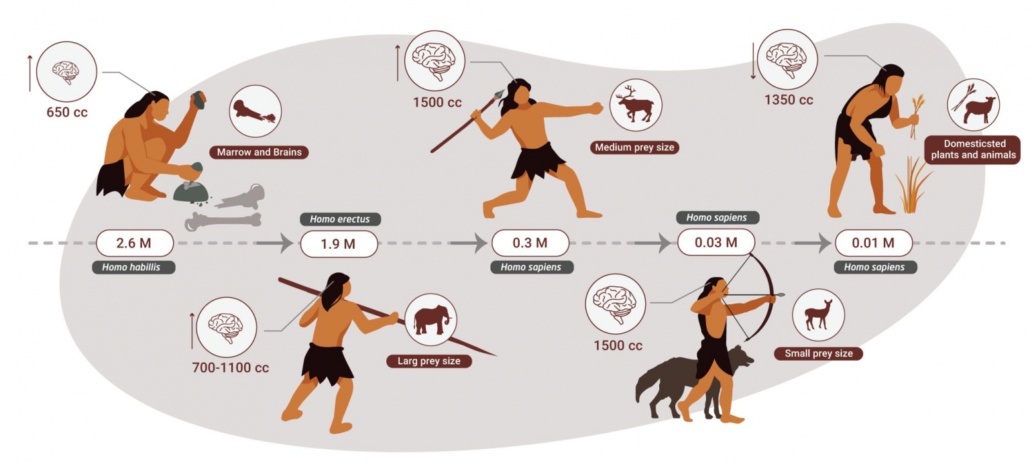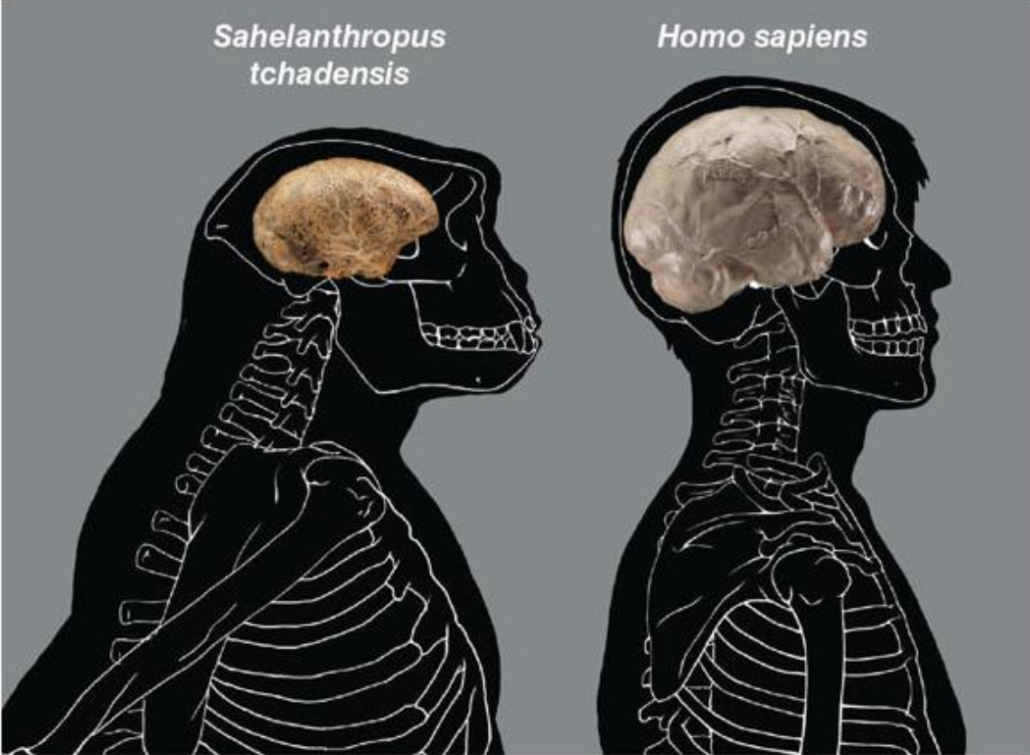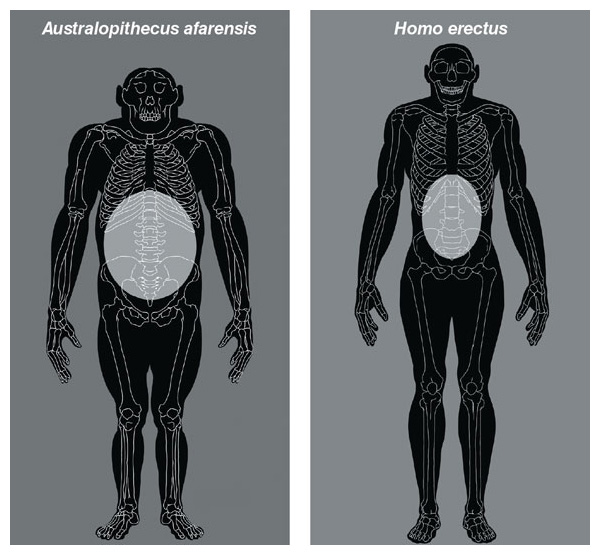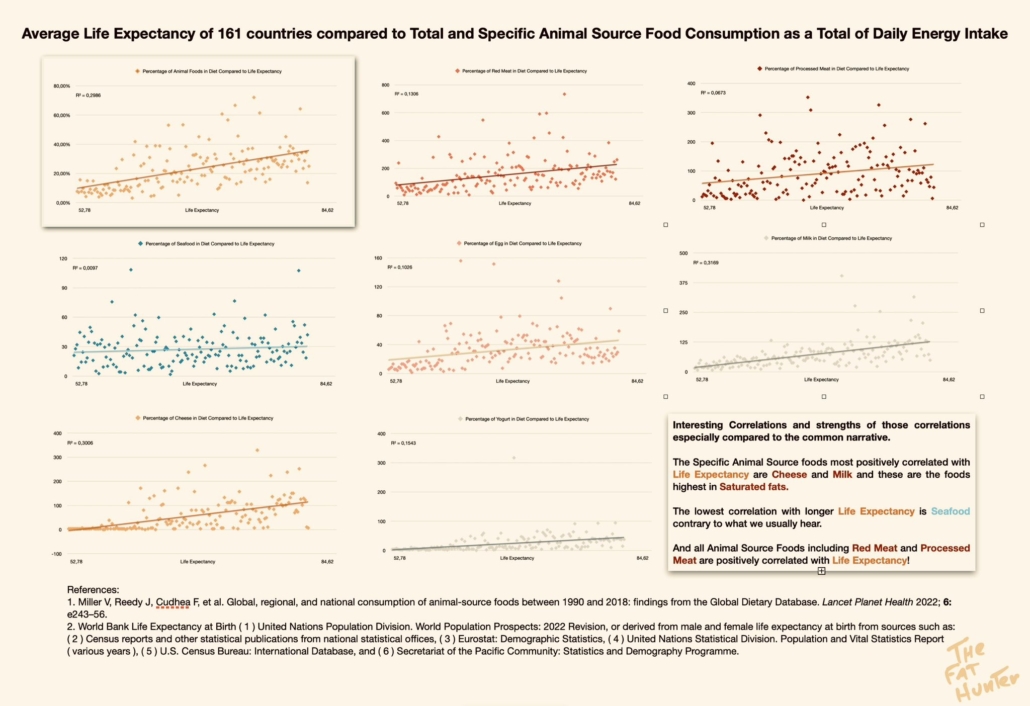We include products in articles we think are useful for our readers. If you buy products or services through links on our website, we may earn a small commission.
Why Humans Should Eat Meat: According to Nutritional Science

The question of why humans should eat meat is a hot-button topic. Drawing on various cultural and ethical considerations, people have strong opinions and beliefs about eating meat.
But in this article, we’re not interested in beliefs and opinions. We’re interested in what nutritional science has to say.
For some people, taking a scientific approach to eating meat may sound cold–after all, we’re talking about killing and consuming animals.
While for others, and from our perspective, a scientific approach to why humans should eat meat is ethically honest and nutritionally critical.
The scientific criteria we consider when exploring why humans should eat meat can be captured in three key questions:
- Is human biology evolved to eat meat?
- Can we meet our nutritional needs without meat?
- How does eating meat benefit or harm our physical health, mental health, and longevity?
Let’s dig in and explore this hotly debated topic.
Table of Contents
The Human Body is Evolved to Thrive on Meat
One of the keys researchers point to for understanding why humans should eat meat is that the human body has various physiological characteristics optimized by and for eating meat.
In a 2023 study published in Animal Frontiers, researchers concluded that “Aspects of human anatomy, digestion, and metabolism diverged from other primates, indicating evolutionary reliance on, and compatibility with, substantial meat intake. Implications of a disconnect from evolutionary dietary patterns may contribute to today’s burden of disease, increasing the risk for both nutrient deficiencies and chronic diseases.”
Here are a few key meat-eating adaptations that separate humans from our herbivorous primate relatives
Huge brains
The human brain uses 20% of our energy intake, while the ape brain uses 8%.
The rapid growth of the human brain occurred around 2.5 million years ago when our ancestors learned to use percussion tools to scavenge nutrient-dense bone meats like marrow and brains.

Source: Dr Miki Ben Dor
Our bigger brains soon made us smart enough to create tools and devise collective hunting techniques needed to take down larger prey.

Illustration by Karen Carr Studios; endocasts from Smithsonian’s Human Origins Program
Digestive System
Meat from large, fatty animals is far more nutrient-dense than any plant food. This nutrient density allowed our ancestors to evolve a much shorter digestive tract and caused us to lose the enzymes needed to break down plant fibers.
Numerous lines of research suggest that humans existed for nearly two million years as hyper-carnivorous apex predators. This makes sense when considering that the world was teaming with huge animals called “megafauna.” It wouldn’t make sense to waste energy/calories collecting far less nutritious plant foods.
Not coincidentally, it was the collapse of megafauna populations around 10,000 years ago due to human hunting that forced some populations to cultivate plants.
On the other hand, herbivores like cows, bison, deer, and gorillas have long digestive tracts that produce enzymes and gut bacteria necessary for breaking down plant fibers and fermenting them into fatty acids. It’s not the plants that provide the nutrients but the fermentation process in the gut.

Source: Smithsonian’s Human Origins Program
Humans evolved to eat the fat of other animals. A much more nutritious and, therefore, efficient process that was responsible for our rapid brain growth.
Furthermore, the human stomach has extremely high acidity, in line with other carnivores. High acidity helps break down meat and protect against pathogens in scavenged meat.
Humans also produce the enzymes necessary for digesting and absorbing meat, including protease and lipase.
Nutrients Only Found in Meat
From a nutritional perspective, humans should eat meat because there are numerous essential and non-essential but important nutrients that humans can only get from meat.
Nutrients found only in meat include:
- Vitamin B12: essential for proper neurological function and the formation of red blood cells. It is only found in animal products, including meat, fish, eggs, and dairy.
- Omega-3 fatty acids: An essential fatty acid that plays an important role in brain function, heart health, inflammation control, and overall well-being.
- Vitamin D3: Though your body can make the vitamin D it needs from sunshine, many people don’t get sufficient exposure. Vitamin D plays a crucial role in regulating calcium and phosphorus absorption, promoting bone health, supporting immune function, and reducing inflammation.
- Creatine: This compound is important for muscle function and energy production. It is found almost exclusively in animal products, particularly in meat.
- Vitamin A (retinol): Essential for maintaining vision, physical development, immune function, and reproduction. Though some plants provide a precursor to vitamin A called carotene, studies show that this is far less absorbable than retinol. And that 45% of people carry a genetic variation that makes carotenes essentially unusable.
- Heme iron: Plays a crucial role in transporting oxygen throughout the body as a component of hemoglobin in red blood cells and myoglobin in muscle cells. Iron is another vitamin that is found in both plant and animal foods but is far more absorbable in its animal version (heme). Studies have found that vegans and vegetarians are often iron deficient.
Along with the above nutrients, similar disparities exist between animal and plant sources of zinc, iron, and vitamin K, leading scientists to coin the term “meat efficiency.”
Plant foods also contain compounds called antinutrients that are good for plants but bad for human nutrition.
Antinutrients, including phytates (phytic acid), lectins, and oxalates, bind to zinc, iron, and calcium, resulting in deficiencies.
One nutrient in meat that has caused unwarranted alarm is saturated fat. Though early studies erroneously linked saturated animal fat to heart disease, more recent and higher-quality studies are setting the record straight.
A 2010 meta-analysis of the effects of eating red meat found that “Although intake of processed meat has been associated with increased risk of CHD (coronary heart disease), intake of unprocessed red meat is not, which indicates that the saturated fat content of meat is unlikely to be responsible for this association.”
Likewise, a bellwether 2020 meta-analysis published in the Journal of the American College of Cardiology concluded, “Whole-fat dairy, unprocessed meat, and dark chocolate are SFA-rich foods with a complex matrix (of nutrients) that are not associated with increased risk of CVD. The totality of available evidence does not support further limiting the intake of such foods.”
Meat is Critical for Mental Health
Why should humans eat meat? Numerous studies have found that meat eaters have far fewer incidences of mental health issues, including depression and anxiety.
Two separate 2021 meta-analyses looking at numerous studies with data from nearly 600,000 participants found that vegetarians had significantly higher depression and anxiety scores than non-vegetarians.
These findings were not influenced by sex or age. And that the higher the quality of the study that was analyzed, the stronger the correlation there is between meat eating and better mental health.
Should Humans Eat Meat for Physical Health?
One of the ways to determine whether humans should eat meat is by comparing diets high in meat that eliminate most non-meat foods with low-fat vegetarian diets.
Randomized control trials comparing these two diets have found that the high-meat diets lead to significantly better markers of weight loss and cardiovascular health.
Looking at meat as part of a broader diet, researchers have found that “As a food matrix, meat is more than the sum of its individual nutrients. Moreover, within the diet matrix, it can serve as a keystone food in food-based dietary interventions to improve nutritional status, especially in regions that rely heavily on cereal staples.”
Meat for Longevity?
Another reason why humans should eat meat is that studies have found that total meat consumption directly correlates with greater life expectancy.
This correlation is independent of total calories that people eat, their economic status, urban advantages like access to health care, and obesity.

Why Should Humans Eat Meat? The Bottom Line
Research into the nutritional benefits of eating meat, along with research on human dietary evolution, all strongly suggest that humans should eat meat.
The human body is specially adapted to eating meat, and meat provides a robust complex of essential nutrients, some of which are only found in meat and many of which are found in their richest and most bioavailable forms in meat. Without meat, it is nearly impossible for humans to get the nutrients they need without artificial and processed fortification of less nutritious plant foods.















